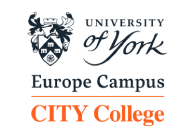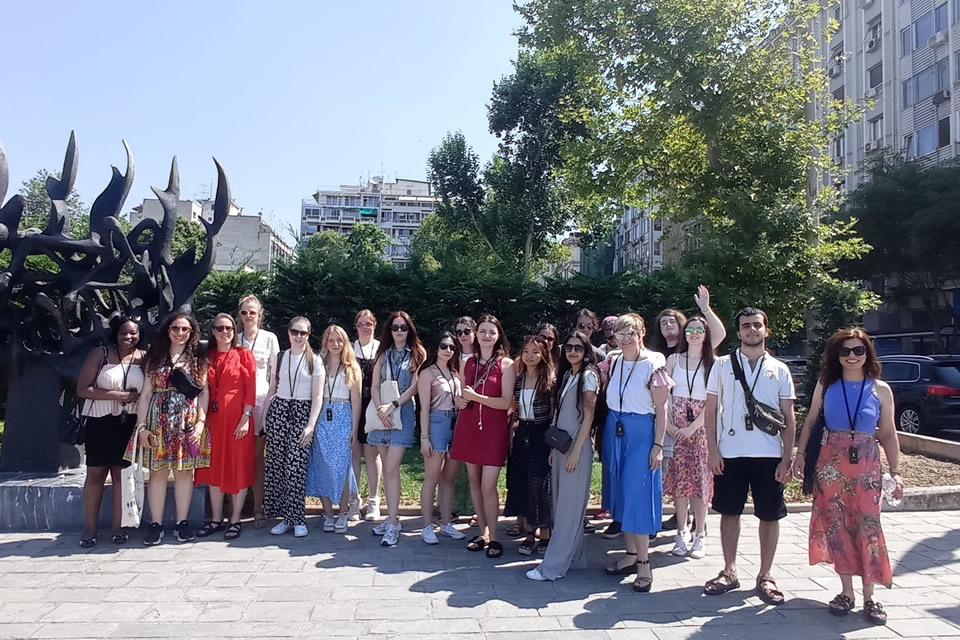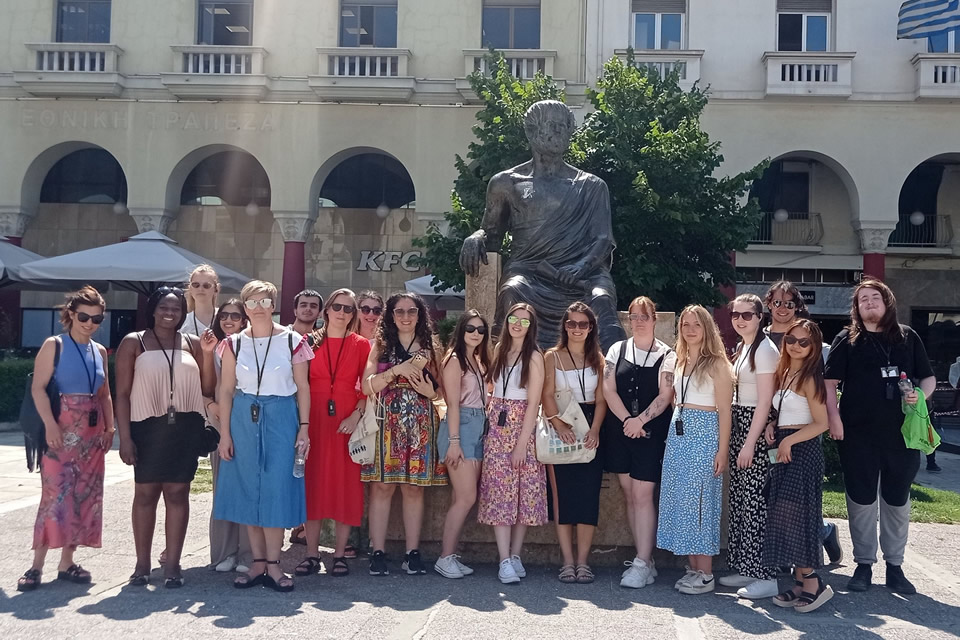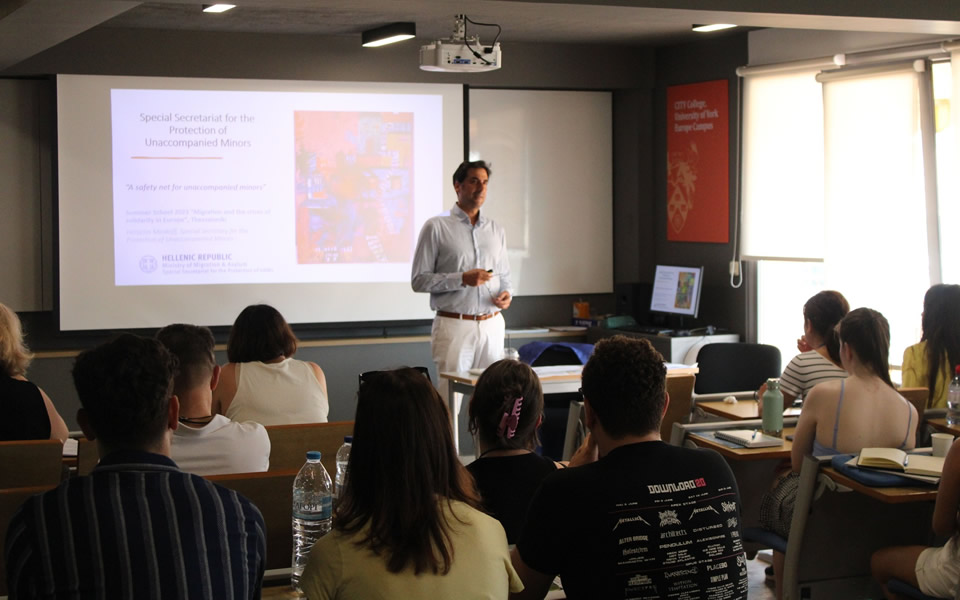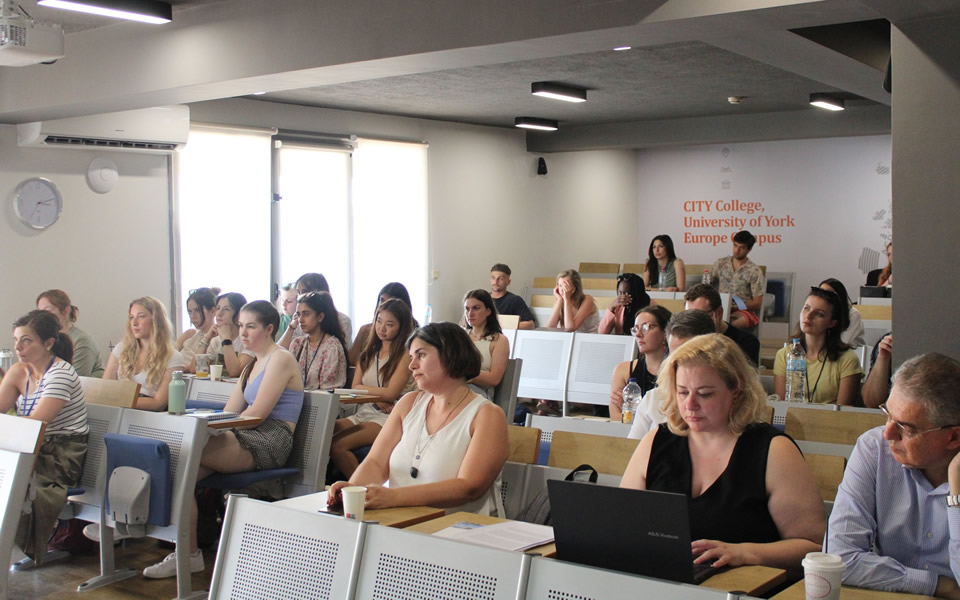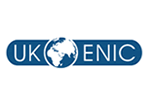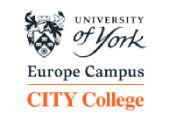Summer School 2023

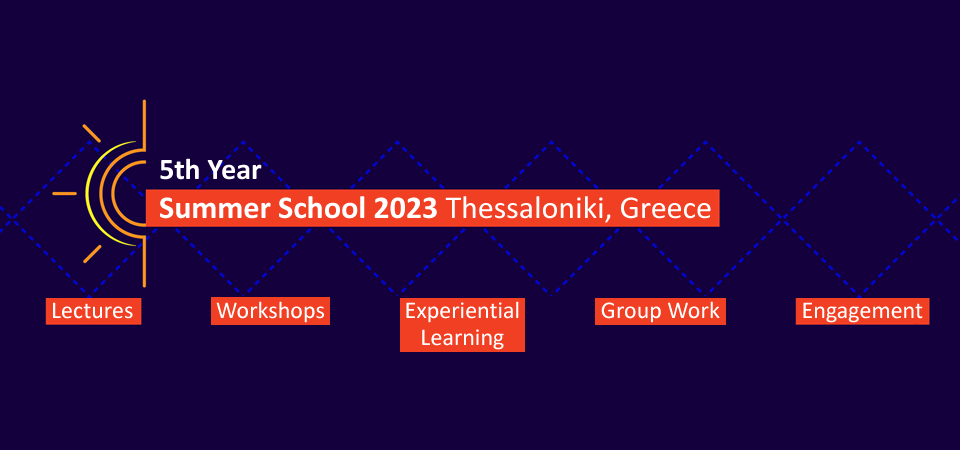
“Migration and the crises of solidarity”
When: Starting on Friday, June 23rd until Friday, June 30th 2023
Where: Thessaloniki, Greece
Organised by CITY College, University of York Europe Campus
Ιn cooperation with:
- The University of York Migration Network (MIGNET)
- The Department of Politics of the University of York
- The Department of Politics of the University of Sheffield
- The Department of Sociological Studies of the University of Sheffield
- The University of Sheffield Migration Research Group
Description of the programme
This summer school asks – what do different crises of solidarity look like in Europe today? What central struggles and tensions are shaping practices and acts of solidarity? And ultimately, what could solidarity look like in the context of the continual movement of people to Europe in large numbers?
The summer school offers participants theoretical and practical insights into this state of continuous and successive crises that Southeast Europe has been experiencing and how this reflects on the idea of solidarity, within the Eurozone ‘crisis’, the ‘crisis’ of liberal democracy, the ‘migrant crisis’, the COVID-19 pandemic and the war in Ukraine.
Crucially, the programme offers participants direct hands-on experience ‘on the ground’ through the opportunity to engage with NGOs working with refugees and asylum seekers.
The summer school will be carried out in the form of lectures and workshops on migration, integration and solidarity, listening to real life experiences, views and insights from people working in NGOs and public authorities managing migration flows and integration in Greece.
Read here the full description of the programme
Main Themes and Activities
Lectures - Workshops - Experiential Learning - Group Work - Engagement
The summer school focuses on making students aware of the wider political, economic and social implications of migration flows and border regimes and the new challenges arising from the COVID-19 pandemic and the war in Ukraine, through the lens of solidarity, via a series of lectures, workshops, guest speeches and engagement activities.
By the end of this summer school students will have the chance to:
- Expand their knowledge on migration and border regimes, integration and solidarity post- 2014;
- Understand how mobility and migration regimes, practices and representations affect every aspect of modern society;
- Familiarize themselves with solidarity in theory and practice and related challenges;
- Engage with NGOs and understand how the lives of refugees and migrants are shaped by the new realities
Programme Information
When: Friday, June 23rd to Friday, June 30th 2023
Where: Thessaloniki, Greece
Duration: 8 days
Language of instruction: The programme is taught and delivered in English.
Maximum number of participants: 35
Application Deadline: 27 March 2023
Who can apply:
Applicants must be final year Undergraduate or Postgraduate students or PhD candidates registered on a university course in the field of migration or related Social Sciences (e.g. Law, Psychology, Sociology, Politics, Developmental Studies, Post-colonial Studies, International Political Economy, Communication Studies, Business Studies etc) and be fluent in English. Any other applicant should demonstrate a strong interest in migration related issues in order to be admitted to the program.
Summer School certificate:
Upon completion of the programme students will receive a Certificate of Attendance from CITY College, University of York, Europe Campus.
Credits:
The course is worth 15 UK credits or 7.5 ECTS or 3 US credits. To earn credits interested students will have to complete a written assignment.
Why Thessaloniki?
Thessaloniki is now a modern European city in Northern Greece, situated in the Gulf of Thermaikos of the Aegean Sea. It is the second largest city in Greece and the capital of the region of Central Macedonia. Throughout its fascinating and continuous history of 2500 years, the city welcomed and accommodated a significant number of refugees and migrants; Jewish, Armenian, Turkish, Slavic and Greek populations have co-existed for many years, creating a vibrant metropolis. Read more about Thessaloniki
Description of the programme
Dubbed from the start as a 'migrant crisis', post-2014 migration related challenges had been framed within the neoliberal notion of crisis management. Eight years on, the framing of ‘migrant crisis’ still features prominently in the public debate and crisis seems to have developed into a central logic of migration governance in Europe and beyond. However, it is becoming increasingly evident that this is more than a migrant crisis per se. Instead, debates about it being a crisis of hosting, of humanitarianism and ultimately a crisis of solidarity arise. Some might even argue that it is a ‘crisis’ produced not so much by the movement of people but the often violent and hostile response of states and EU agencies to this movement and a crisis produced by the underlying social forces of war, global inequality, climate change, nationalism and racism. In this context, this summer school asks – what does the crisis of solidarity look like in Europe today? What central struggles and tensions are shaping practices and acts of solidarity? And ultimately, what could solidarity look like in the context of the continual movement of people?
The summer school offers participants theoretical and practical insights into this state of continuous and successive crises that the world has been experiencing and how this reflects on the idea of solidarity, within the framework of the Eurozone ‘crisis’, the ‘crisis’ of liberal democracy, the ‘migrant crisis’, the COVID-19 pandemic and the Russian invasion in Ukraine producing new waves of crises, including energy, food and security crises. Participants further learn from people ‘on the ground’, practitioners and internationally-acclaimed experts how these ‘crises’ re-enact each other, how they create the environment in which migration governance is currently formulated and how related narratives are constructed feeding into existing ones. Solidarity is understood among EU member states, as well as, from the host society towards migrants, among various migrant groups, or from migrant groups towards the host society. Furthermore, this summer school will offer critical engagement with moves to curtail and discipline acts of solidarity between host communities and people on the move and reflect on whether the ‘migrant crisis' has morphed into a crisis of not only movement but also democracy.
During the course of the summer school, students will address the following topics, along with the guidance and input of experts and practitioners: What are the long-term implications for a ‘new’ European politics of the language of 'migration crisis' and solidarity, given the rise in populism and far-right political movements across many European countries? What is life like now for those who moved a few years ago and remain in precarious living settings with insecure immigration status? How has discourse about the ‘migrant crisis’ penetrated narratives on existing ‘crises’, including the notion of solidarity? What has been the impact of the COVID-19 pandemic or the Russian invasion in Ukraine on different expressions of solidarity? How are local organizations and institutions, in the places where numbers of recent international incomers peaked in 2015-2016, moving on from the 'crisis' of arrival to longer term questions of solidarity, integration and settlement? What is the view from the field, shared by policy makers and practitioners?
Crucially, participants will have the opportunity to engage with local and international NGOs and gain insight into the topics tackled in this summer school from the unique perspective of practitioners.
The summer school will be carried out in the form of lectures and workshops on migration, integration and solidarity, listening to views and insights from people working in NGOs and public authorities managing migration flows and integration in Greece.
